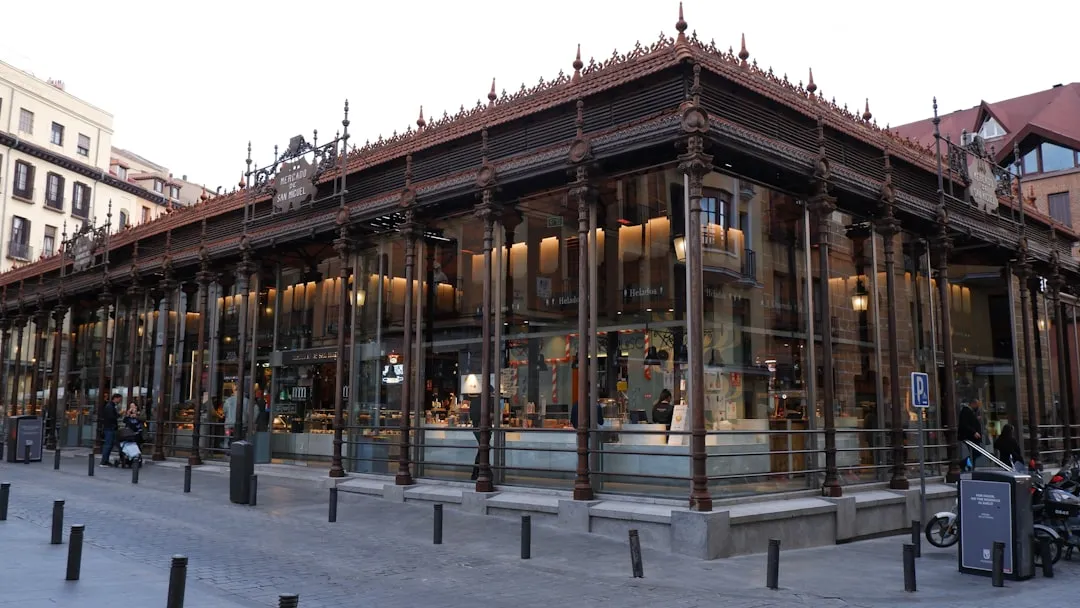Thinking about relocating to Spain? You’re not alone. Every year, thousands of expats flock to this Mediterranean paradise to enjoy its rich culture, pleasant climate, and excellent quality of life. But moving abroad can be daunting, especially when it involves bureaucracy, unfamiliar legal systems, and language barriers.
Having moved to Spain twice myself—first to Madrid in 2016 for my studies, and then to Barcelona in 2019 for work—I understand the challenges and opportunities that come with this transition. In this ultimate guide, I’ll walk you through the entire relocation process, step by step, so you can start your new life in Spain with confidence and excitement.
Step 1: Choose the Right Visa
Before packing your bags, you need to determine which visa best suits your purpose of stay. Spain offers a variety of visa options depending on your situation, from studying to working or retiring.
Common Visa Types for Expats
- Student Visa: If you're moving to Spain for education purposes, as I did when I first moved to Madrid, the student visa is your best bet. It allows you to stay in Spain for the duration of your course and even work part-time.
- Work Visa: For those relocating for employment, like I did when I moved to Barcelona, you'll need a job offer from a Spanish company. The employer will typically sponsor your visa.
- Digital Nomad Visa: If you work remotely and want to enjoy the Spanish lifestyle without local employment, the digital nomad visa is a great option.
- Non-Lucrative Visa: Ideal for retirees or those with passive income, this visa allows you to live in Spain without the need to work.
- Golden Visa: For individuals who plan to invest €500,000 or more in Spanish real estate, this visa grants residency rights.
Tip: Start your visa application process at least 3-6 months before your planned move. It can take time to gather all the necessary paperwork and navigate embassy appointments.
Step 2: Prepare Your Paperwork
Spain is known for its bureaucratic hurdles, but being well-prepared will save you from a lot of headaches. Some of the key documents you'll need include:
- Passport: Ensure it's valid for at least six months.
- Visa application forms: Depending on the type of visa you’re applying for.
- Proof of financial means: Bank statements, job contracts, or scholarships to prove you can support yourself.
- Health insurance: Spain requires proof of health insurance coverage for visa applications.
- Accommodation details: Proof of where you’ll be staying, whether it’s a lease agreement or a hotel booking.
Both times I moved to Spain, finding an apartment was a challenge. Platforms like Idealista and Fotocasa were lifesavers, but be prepared to face some competition, especially in popular cities.
Step 3: Register for Your NIE (Número de Identificación de Extranjero)
The NIE is a critical piece of identification for expats living in Spain. Whether you’re renting an apartment, opening a bank account, or signing a work contract, you’ll need this number.
To apply for your NIE:
- Make an appointment at the nearest Extranjería office.
- Bring your passport, visa, proof of address, and completed NIE application form (EX-15).
- Pay a small fee (around €10-15) at a local bank before submitting the application.
Tip: The process can be slow, so try to get an appointment as early as possible after arriving in Spain. Reach out to us if you encounter any issues.
Step 4: Find a Place to Live
Spain offers a wide variety of housing options, from modern city apartments to countryside villas. When choosing your new home, consider:
- Location: Do you prefer the bustling energy of cities like Madrid or Barcelona, or the relaxed pace of smaller towns like Valencia or Seville?
- Cost of Living: Renting in cities like Madrid or Barcelona can be more expensive, while smaller cities and towns are more affordable.
- Transport: Proximity to public transportation is key if you don’t plan on owning a car.
My Experience:
In Madrid, I lived in a student apartment near the city center, which was great for networking and nightlife. When I moved to Barcelona for work, I opted for a more connected neighborhood, Eixample, which gave me easy access to both the beach, workspaces and restaurants.
Popular housing platforms:
- Idealista: Great for long-term rentals.
- Fotocasa: Another reliable site for both renting and buying.
- Airbnb: Ideal for temporary accommodation while house hunting.
Step 5: Open a Spanish Bank Account
Opening a local bank account is not mandatory, but will make your life easier when paying bills, rent, and handling day-to-day expenses.
To open a Spanish bank account, you’ll need:
- NIE (or passport if you're in the process of obtaining it)
- Proof of address
- Employment contract or proof of income (depending on the bank)
Spain has a wide range of banks, but some of the most popular among expats include BBVA, CaixaBank, and Santander. You can usually open a non-resident account while waiting for your NIE.
Step 6: Get Health Insurance
Spain has an excellent healthcare system, but depending on your visa, you may need private health insurance, especially if you’re not yet employed.
- Public healthcare: Once you have a work contract, you’ll be covered under Spain’s public health system.
- Private healthcare: You may need to arrange private health insurance before your arrival, as required for visa applications. Companies like Sanitas and Adeslas offer comprehensive plans.
When I moved to Barcelona, my work contract allowed me to access the public healthcare system. The peace of mind was worth it. If you are not lucky enough, we can help you choose the right healthcare insurance for expats in Spain.
Step 7: Understand Spain’s Tax System
One of the biggest concerns for expats is navigating Spain’s tax system. Spain taxes residents on their worldwide income, so it’s important to clarify your tax status.
- Resident status: If you live in Spain for more than 183 days per year, you're considered a tax resident.
- Non-resident status: If you spend less time in Spain, you’ll only be taxed on income earned within the country.
- Double tax treaties: Spain has agreements with many countries to prevent double taxation.
When I moved for work, I sought the help of a local gestor (a legal advisor) to ensure I stayed compliant with Spain’s tax laws.
Step 8: Embrace the Spanish Culture
Living in Spain is more than just bureaucracy—it’s an opportunity to immerse yourself in a vibrant culture! Whether you're enjoying Madrid’s lively streets, Barcelona’s beachside charm, or the relaxed pace of southern Spain, you’ll quickly discover that Spain offers something for everyone.
- Learn Spanish: While many Spaniards speak English in major cities, learning basic Spanish will go a long way in making you feel at home.
- Enjoy local customs: From the daily siesta to tapas culture, Spain has a rhythm of life that’s distinct and beautiful. Don’t rush it—embrace it.
Step 9: Stay Connected with Other Expats
Finally, moving to a new country can be lonely, especially if you're unfamiliar with the language and customs. Fortunately, Spain has thriving expat communities in nearly every major city. Joining local expat groups, online forums, or attending language exchanges will help you build a network.
When I first moved to Madrid, joining expat meetups helped me settle in faster, and when I moved to Barcelona, I found coworking spaces like WeWork and Aticco to be invaluable for both networking and making new friends.




